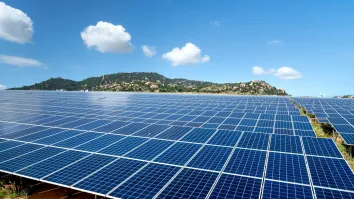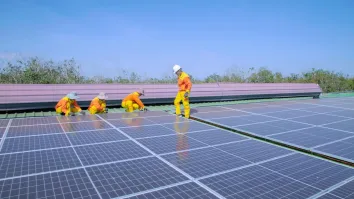
Japan is unlikely to achieve grid parity for wind power
Too pricey for an uncompetitive capacity.
In terms of the renewable energy policy of Japan, energy security is the biggest challenge the country is facing, according to Masao Masuda, general manager for overseas business, transportation and energy at the Development Bank of Japan.
He said in a conference at The World Smart Energy Week, "If Japan is to increase renewable energy, we can secure energy but we still need to make ends meet financially as this will definitely cost a lot."
When it comes to wind power, Japan has been far behind the global trend, Masuda said. In 2015, the global wind power capacity has hit 432GW, while Japan's contribution is a measly 3GW. Despite this stark difference in numbers, the government outlook ambitiously insisted on doubling the renewables contribution in the country's energy mix to 22-24%, but only 1.7% of which is wind.
"How much capital is going to be necessary to attain this ambition? We will need JPY2.19b to achieve 10,000MW in 2030. In total, we will need around JPY19.8b to JPY20.7b investment capital for 131,510MW of renewables in 2030," Masuda said.
"In addition, with regards to cost competitiveness of wind power in Japan, system costs in the country is much higher than in other countries. Japan is still behind the US and European countries in terms of cost competitiveness of renewable energy and grid parity is unlikely to be achieved in the short term. Japan's system costs is at USD156/MWh for over 20MW proejcts, but India is at USD77/MWh and Germany is at USD79/MWh for the almost the same capacity," he added.
In today's market, the feed-in tariff introduced in 2012 helped Japanese wind power operators survive financially, but the fundamentals of Japanese wind power market is still caught in a vicious cycle of high generation cost and slow growth. To fix this, Masuda said that fundamental changes are necessary to make wind power significant to Japan's electricity market but reducing generation cost to grid parity, and increasing wind's share in generated electricity.
He added that wind power operators must do their share as well to push the wind energy sector in the country by cooperating to gain bargaining power and creating more competitive wind power industry cluster. These operators must also commit to shift wind power towards a more mainstream stance, and change business models whenever necessary.
As for the finance sector, Masuda said that these firms must allocate a larger amount of capital available for wind power by making a structural shift of long-term investors for renewables, and making the capital market open for renewable energy.
The World Smart Energy Week 2017 is currently being held in Tokyo from March 1 to 3 at the Tokyo Big Sight.



















 Advertise
Advertise







